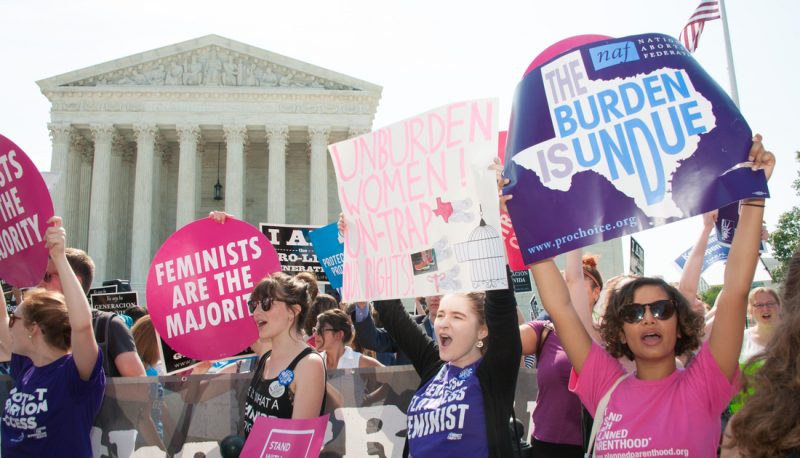Although anti-abortion legislation in the states has long been a concern, many reproductive rights activists have become increasingly alarmed in 2019 as state legislators throughout the South and Midwest are implementing extremely restrictive and near-total abortion bans. These extreme bans actively deny people their constitutional right to abortion by pushing a dangerous agenda that is meant to limit and ultimately overturn Roe v. Wade. To learn about the history of these state restrictions, discuss the latest developments, and engage in a discussion on policy developments that could help, PFAW attended a briefing led by a panel of reproductive rights experts on May 23 on Capitol Hill.
An incredible panel today on Capitol Hill to discuss abortion restrictions on the states and what can be done to ensure nationwide protections. #StopTheBans #AbortionSolidarity #ReproRights pic.twitter.com/NZPPu4DZcS
— PFAW (@peoplefor) May 23, 2019
The first speaker, Elisabeth Smith from the Center for Reproductive Rights, went over the various types of abortion restrictions in the states and how they play out on a practical level for people who are seeking access to the procedure. She made it clear that although this issue has grabbed the spotlight in recent weeks due to extreme bans newly enacted by a few state legislatures, most states already have burdensome restrictions in place. She emphasized the importance of understanding the different types of restrictions so activists know where and how to fight back.
Elizabeth Smith From @ReproRights discussing the various kinds of abortion restrictions in each state. #StopTheBans #ReproRights #AbortionSolidarity pic.twitter.com/b4NWcm9X7I
— PFAW (@peoplefor) May 23, 2019
The second speaker, Helene Krasnoff from Planned Parenthood, stated that legislators “don’t need to ban abortion legally to practically ban abortions for millions of women.” She discussed how certain states have already made getting an abortion so difficult that it’s essentially already banned. She then went into detail about how these new laws will move through the court system and what we can expect from the Supreme Court next term.
.@hkrasnoff: “We have to keep an eye on the courts that are already creating a post-Roe world for many women.” #StoptheBans #AbortionSolidarity pic.twitter.com/CW4Pb3t9KH
— PFAW (@peoplefor) May 23, 2019
Finally, Kimberly Inez McGuire from Unite for Reproductive & Gender Equity (URGE) gave a passionate speech and emphasized that no one should have to justify their choice to terminate a pregnancy. Although many legislators and activists “pat themselves on the back” for including rape and incest exceptions when enacting burdensome restrictions, these rarely actually help those they claim to protect. McGuire discussed how most people who have been through sexual trauma do not want to go through the experience of discussing this with a government official. She also told stories of women who are actively fighting these bans in rural states, and suggested that activists on the outside should trust folks on the ground to communicate what help they need to fight back.
.@KimberlyInezMcG: “Every abortion ban is extreme. One person who has to stay pregnant when they don’t want to be is one person too many.” #StoptheBans #AbortionSolidarity pic.twitter.com/82lswBE52a
— PFAW (@peoplefor) May 23, 2019
